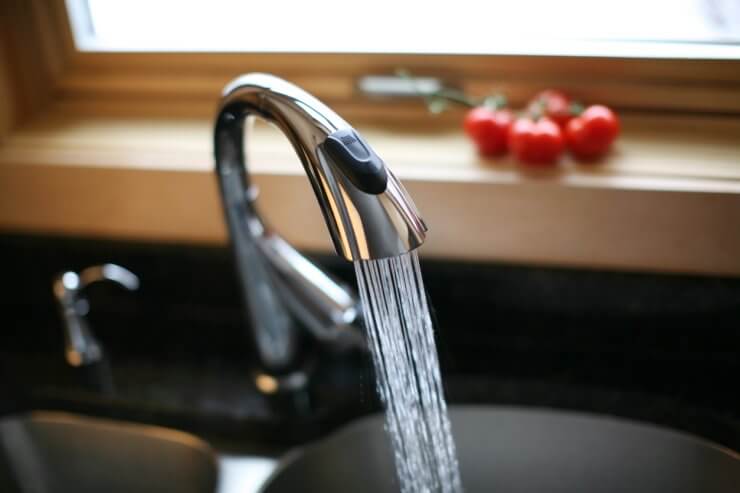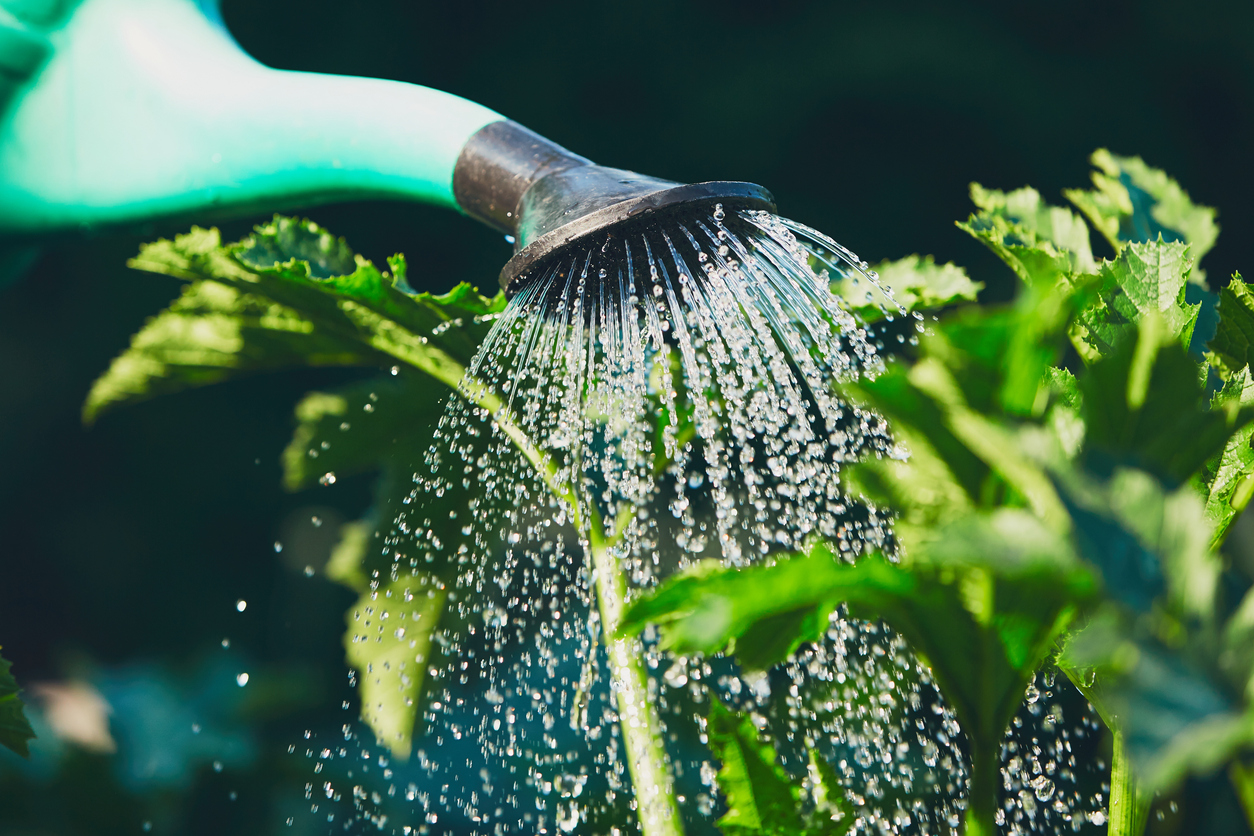
There are some pretty opinionated pieces of writing out there when it comes to the debate between tap water vs. distilled water for indoor plants. One article I read went so far as to say that a plant might “reject” tap water. That seems a little hard to fathom – as if I’m a waiter in a fancy restaurant with my customers shooing me away for bringing plain old faucet water!
For the most part, though, there seems to be a fairly even mix of people that believe tap water is preferable and those who side with distilled water as the ideal source of hydration for indoor gardens. So what is a gardener to do? Well, naturally, I consulted the experts. I looked through numerous university extension articles, and sought out what sources such as the Missouri Botanical Garden and the Royal Horticultural Society had to say about the matter. Here’s what I found out.
Discover 7 top tips for growing, harvesting, and enjoying tomatoes from your home garden—when you access the FREE guide The Best Way to Grow Tomatoes, right now!

Tap water vs. distilled: Here’s what your indoor garden really wants.
Alright, first – why the tap water vs. distilled water debate? What makes them different? Distilled water, which is also known as pure water or deionized water, is water that gets heated to the point of evaporation. That leaves any impurities behind, and the evaporated water is collected, leaving you with distilled water. Distilled water is just hydrogen and oxygen; there are no minerals or salts in distilled water.
Tap water, on the other hand, often contains other elements. For example, you’ll often find chlorine in tap water, as it kills microbes, along with fluoride, which helps prevent tooth decay. Tap water can have a variety of elements mixed in, depending on the geology of a given location.
The argument for using tap water vs. distilled water is that distilled water doesn’t contain any of the beneficial nutrients plants need (outside of the actual water, of course). For example, rainwater supplies nitrogen, which plants need.
That said, distilled water (and rainwater, too) won’t add chlorine, salt, or other potentially harmful elements to your soil.
At this point, it looks like rainwater is the clear winner, but since we’re talking about indoor gardens here, let’s look at a few more facts.
We know chlorine is added to tap water. And we know that chlorine is there specifically to kill microorganisms. We also know that not all microorganisms are harmful and that some are very beneficial and necessary to our gardens. But before we declare distilled water the winner, Colorado State University points out that because chlorine binds to soil particles, it generally only impacts organisms in the top half-inch of soil. And to harm these organisms, you would need about 70 times more chlorine than what is added to most municipal water systems.
As for the salt in tap water, the University of Nevada, Reno points out that you can “add 1 teaspoon of vinegar to a gallon of water once a month or so to eliminate salt build up and to lower the pH of the water.”
What about softened water?
In homes with water systems containing a high quantity of hard elements, it’s not unusual to find water softeners. These systems use salt blocks or pellets to remove those hard minerals and literally soften the water. However, you don’t want to use this water for your indoor garden.
The Missouri Botanical Garden says that the “salt added to the water is deadly to plants over time.”
The winner is…
So tap water vs. distilled water? Which one is the winner? Well, aside from sensitive plants and water with higher concentrations of salt, there doesn’t appear to be a consensus. Here are a few things that most experts agree on:
- If you use distilled water, be sure to use a fertilizer as directed to give your garden the nutrients it needs.
- Don’t overwater. You’ll end up with root rot. Use a water meter or dig your finger into the soil to determine if your plants need water.
- Water according to your plants’ needs. Some plants need more water than others. Likewise, different containers are more or less susceptible to water loss and retention.
- Use room-temperature water. Water that is too hot or too cold can shock the roots. And really, who among us wants icy water poured unexpectedly over their heads?
- Water deeply and less often. ‘Nuf said.
Where do you stand in the debate between using tap water or distilled water for indoor gardening?
Discover 7 top tips for growing, harvesting, and enjoying tomatoes from your home garden—when you access the FREE guide The Best Way to Grow Tomatoes, right now!





I live in north central Fl. Am on a 45′ well never test my water have no animal pens and store no chemicals around it.We love it animals love, plants in and outside love it.Pure spring water ❤️
If you use “hose water” in your outside garden, it comes from same source as your indoor tap water. So what’s the big deal?
Wonderful relationship between gardening and writing. I have found my gardens in Long Island the most needed therapy from my stressful business and city life .
Currently I am laying out plans to incorporate more unusual flowers mixed with herbs and vegetables.
Thank you for reviving such inspiring stories.
Mara J Urshel
What about water from the condensation from an airconditioner. I know people that say its got heavy metals in it and a others that say its great but both use fertilizers. Would it shock my plants if I suddenly switched from city water to condensated water?
Condensation is generally considered safe for plants but you would want to supplement with regular tap water.
I have my own deep well on my property and there is no chlorine added., Is this “pure” well water the best to drink and water gardens with?
All well water should be periodically tested for bacteria and ecoli.